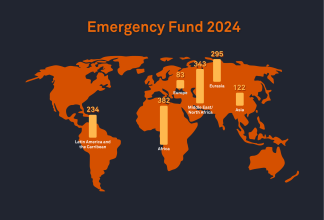Maxim Krupsky on Russia’s New Amendments to ‘Foreign Agents’ Legislation

The Russian State Duma will consider proposed amendments to the 2012 Foreign Agents law on 15 December 2020. These amendments pose serious consequences to an already embattled civil society. The top threat to be imposed is the possibility to terminate any NGO operating out of the state-approved framework. We spoke to Maxim Krupsky, a lawyer and independent expert specialising in analysis of corruption risks in legislative acts and bills. He shared his views on what the amendments could mean for the future of independent NGOs in the country.
The following represents the opinion of the interviewee and do not reflect the opinions of any affiliated organisations.
How has the current legislation on foreign agents and undesirable organisations changed the situation for civil society organisations operating in Russia since both laws came into effect in 2012 and 2016, respectively?
In my opinion, there have been at least two major negative consequences of these two laws for Russian NGOs. First, there are additional bureaucratic burdens – for example, NGOs labelled as ‘foreign agents’ are required to indicate on their materials that the state has recognised the organisation as such, which carries a negative connotation within the society. Such organisations should also undergo regular audits, and provide additional reporting, even though the reporting duplicates information already obtained by government agencies. In my opinion, such reporting requirements are burdensome and excessive.
Another negative effect of the ‘foreign agents’ law is that NGOs recognised as ‘foreign agents’ are stigmatised in Russian society and viewed suspiciously. Such a label creates difficulties for normal interaction with various organisations, including government agencies. In my view, the label “foreign agent” negatively impacts the reputation of the organisation, and civil society in general, and creates distrust in the sector, and reputation and trust are one of the key elements of civil society’s work.
In your opinion, what are the top concerns, given the proposed amendments to the ‘foreign agents’ law (as described above)?
The amendments contain ambiguous terms, an undefined procedure for authorities to take action, and they give law enforcement the right to make arbitrary decisions about an NGO. The implementation as such will lead to the violation of the rights and legitimate interests of independent civil society.
This will violate the legal certainty principle. For example, the amendments include requirements for NGOs to submit their programmes and activities to the government agency. At the same time, there is no clear definition of what an organisation’s programme includes and what constitutes ‘documents that are the basis for the activities’, which could allow the authorities to demand literally any documents from an organisation. Moreover, according to the proposed amendments, the relevant government agency (Ministry of Justice) can prohibit any event or the implementation of any NGO programme without providing any justification for the decision – just because. However, an organisation must adhere to any prohibition; otherwise, the NGO could be liquidated by court order.
How would you describe the state’s motive behind these new amendments? How would the amendments affect NGOs’ work, in practice, should they be passed?
In my opinion, the goal of these amendments is to create even more difficulties for independent organisations and to push them to give up their activities. These amendments, if passed, will portray NGOs who use foreign funds as ‘bad examples’ and will further harm the reputation of civil society in the country.
What can the international community do to support civil society organisations as space for their activities in the country shrinks?
I do not see any effective protection mechanisms for Russian NGOs to safeguard them from such legislation, should it be passed. I think the only approach we can take right now is to spread truthful information about the current situation with Russian NGOs – that will at least show the public the problems civil society faces.
Read our statement about the law amendments here.


